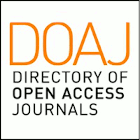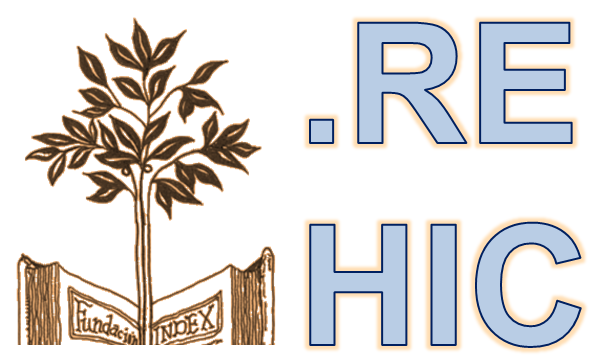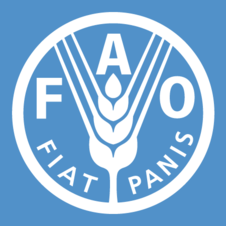Instruments to evaluate the change in habits related to weight control
Keywords:
Control de pesoAbstract
Downloads
References
WHO; 1990. Diet, Nutrition and the Prevention of Chronic Diseases: report of a WHO Study Group. Geneva, World Health Organization.
WHO; 2002. Diet, Nutrition and the Prevention of Chronic Diseases: report of a joint WHO/FAO expert consultation. Geneva, WHO/FAO Expert Consultation.
WHO; 2002. World Health Report 2002. Reducing risk, promoting healthy life. Geneva, World Health Organization.
NOM-043-SSA2-2005. Criterios básicos de salud. Promoción y educación para la salud en materia alimentaria. Criterios para brindar orientación.
SSA; 2010. Acuerdo Nacional para la Salud Alimentaria. Estrategia contra el sobrepeso y la obesidad. S. d. Salud. México, Secretaría de Salud.
Idem.
Zemel, M.B. 2003. Mechanisms of dairy modulation of adiposity. J Nutr. Vol. 133 No. 1:252S-256S.
Scharager, S. 2005. Dietary Calcium intake and Obesity. Journal of the American Board of Family Medicine. Vol 18 No. 3:205-210.
Peyrot, M., R. R. Rubin, et al. 2005. Psychosocial problems and barriers to improved diabetes management: results of the Cross-National Diabetes Attitudes, Wishes and Needs (DAWN) Study. Diabet Med. Vol 22 No.10: 1379-1385.
Vijan, S., N.S. Stuart, et al. 2005. Barriers to following dietary recommendations in type 2 diabetes. Diabet Med. Vol.22 No. 1:32-38.
Lancheros L., A. Pava., A. Bohórquez. 2010. Identificación de la adherencia al tratamiento nutricional aplicando el modelo de Conocimientos, Actitudes y Prácticas de personas con Diabetes Mellitus tipo 2 atendidas en la asociación Colombiana de Diabetes. DIAETA (B. Aires). Vol. 28 No. 133:17-23.
Johnson, S., M.M. Driskell, et al. 2006. Transtheorical model intervention for adherence to lipid-lowering drugs. Dis Manag. Vol. 9 No. 2:102-114.
Armitage, C.J. 2010. Can variables from the transtheorical model predict dietary change? J Behav Med. Vol 33 No. 4:264-273.
Di Noia, J. y J.O. Prochaska. 2010. Dietaty stages of chance and decisional balance: a meta-analytic review. Am J Health Behav. Vol. 34 No. 5:618-632. 15.
Spahn, J.M., R. S. Reeves, et al. 2010. Stage of the evidence regarding behavior change theories and strategies in nutrition counseling to facilitate health and food behavior change. J Am Diet Assoc. vol. 110 No. 6:879- 891.
Prochaska, J.O. y C.C. DiClemente. 1985. Common processes of change of smoking, weight control, and psychological distress. En Coping and Substance Abuse. [S. Shiffman y T. Willis] New York, Academic Press: 345- 364. 16. Prochaska, J.O. y V.W.F. 1997. The transtheoretical model of health behavior change. Am J Health Promot. Vol 12:38-48.
Baranowsky, T., C. Perry, et al. 1997. How Individuals, Environments and Health Behavior Interact: Social Cognitive Theory. En Health Behavior and Health Education Theory, research and practice. [K. Glanz y F.M. Lewis] 2a edición, San Francisco, Jossep- Bass. Cap 8:153-178.
Prochaska, J.O. et al. Op. cit.
Idem.
Horacek, T.M. y A. White. 2002. Stages of change for fruit and vegetable intake (Fruit and Vegetable Consumption). Nutrition Research Newsletter Nov 2002: 7. Consultado el 21 de Julio de 2011 [http://go.galegroup.com/ps/i.do?&id=GALE%7CA94763518&v=2.1&u=yazlocation&it=r&p=GPS&sw=w]
Horacek, T.M., A. White, et al. 2002. Self- efficacy perceived benefits and weight satisfaction discriminate among stages of change for fruit and vegetable intakes for young men and women. J Am Diet Assoc. Vol. 102 No. 10:1466- 1470.
Schwarzer, R. y B. Renner Health Specific Self-efficacy Scales. Berlin, Freie Universiät. Consultado el 18 de Julio 2011 [http://userpage.fu-berlin.de/~health/healself.pdf ]
WHO; 2003. Fruit and Vegetable Promotion Iniciative. Geneva, World Health Organization:36.
Green, G.W., J.O. Prochaska, et al. 1990. Dietary applications of the stages of change model. J Am Diet Assoc. Vol 99 No.6:673-678.
Downloads
Published
How to Cite
Issue
Section
License

This work is licensed under a Creative Commons Attribution 4.0 International License.
The rights of the work belong to the author or authors, however, by sending it for publication in the Public Health and Nutrition Magazine of the Faculty of Public Health and Nutrition of the Autonomous University of Nuevo León, they grant the right for its first publication in between electronic, and possibly, in print to the Public Health and Nutrition Magazine. The license used is the Creative Commons attribution, which allows third parties to use what is published whenever the authorship of the work is mentioned and the first publication that is in the Public Health and Nutrition Magazine. Likewise, the author or authors will take into account that it will not be allowed to send the publication to any other journal, regardless of the format. The authors will be able to make other independent and additional contractual agreements for the non-exclusive distribution of the version of the article published in the Public Health and Nutrition Magazine (e.g., institutional repository or publication in a book) provided they clearly state that The work was published for the first time in the Public Health Magazine, Magazine of the Faculty of Public Health and Nutrition of the Autonomous University of Nuevo León.










